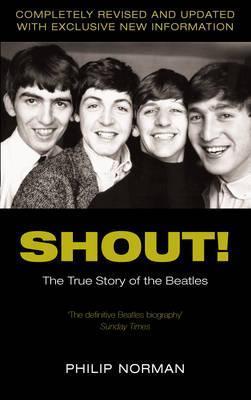Book review: Shout! by Philip Norman

This is a book of thirds. The first third, which deals with the early lives of John Lennon, Paul McCartney, George Harrison and Ringo Starr and the Liverpool music scene of the late 1950s and early 1960s is excellent. It brought vivid memories of my own childhood back to me: World War II was only a decade and a half ago, its scars were all too visible, and most people in the country were, by today’s standards, living in poverty. Music, the new music coming over from America was an escape from what must have seemed a blighted land and many more than these four young men embraced it. Norman does a great job of setting the excitement of the time against the wider society, and fitting the four young Beatles into it.
The first third is also great at depicting how they met, how they started playing together, their formative stints in Germany playing for hours on end at clubs in Hamburg, and the way in which Lennon, McCartney and Harrison pushed out Pete Best in favour of Ringo Starr. All fascinating, culminating with their rise to fame and the emergence of Beatlemania.
The second third is also good but less interesting as, intrinsically, reading about a group of young men dealing with fame and money, each other and drugs is intrinsically less interesting. The business dealings, the record deals, the mismanagment of Apple: all very well but not so much fun. That’s more the fault of life than Philip Norman.
However, it’s in the final third that the book really falls down. In his introduction, Norman states that everyone is either a Lennon or a McCartney fan and he falls into the former camp. I’m not sure I agree with the premise of the statement – surely it is possible to appreciate the work of both? – but even if it were the case, then Norman’s avowal of his preference for Lennon should have worked to inform him of his own biases. Instead, the final third becomes a rather ludicrous working out of Norman’s desire to laud everything Lennon and downplay everything that McCartney had a hand in. So not only is Lennon’s songwriting better but everything that Lennon did is presented in the best possible light while McCartney is depicted as facile, self-deceiving and hyprocritical. This bias even extends to their wives: Yoko Ono was apparently an artist of serious repute in her own right while Linda McCartney was nothing but a simpering fangirl who stroked her husband’s ego and did nothing of value in her own right.
So, excellent at the start, good to middling in the middle, and a ridiculous exposition of the writer’s biases at the end. Take your pick!
0 Comments